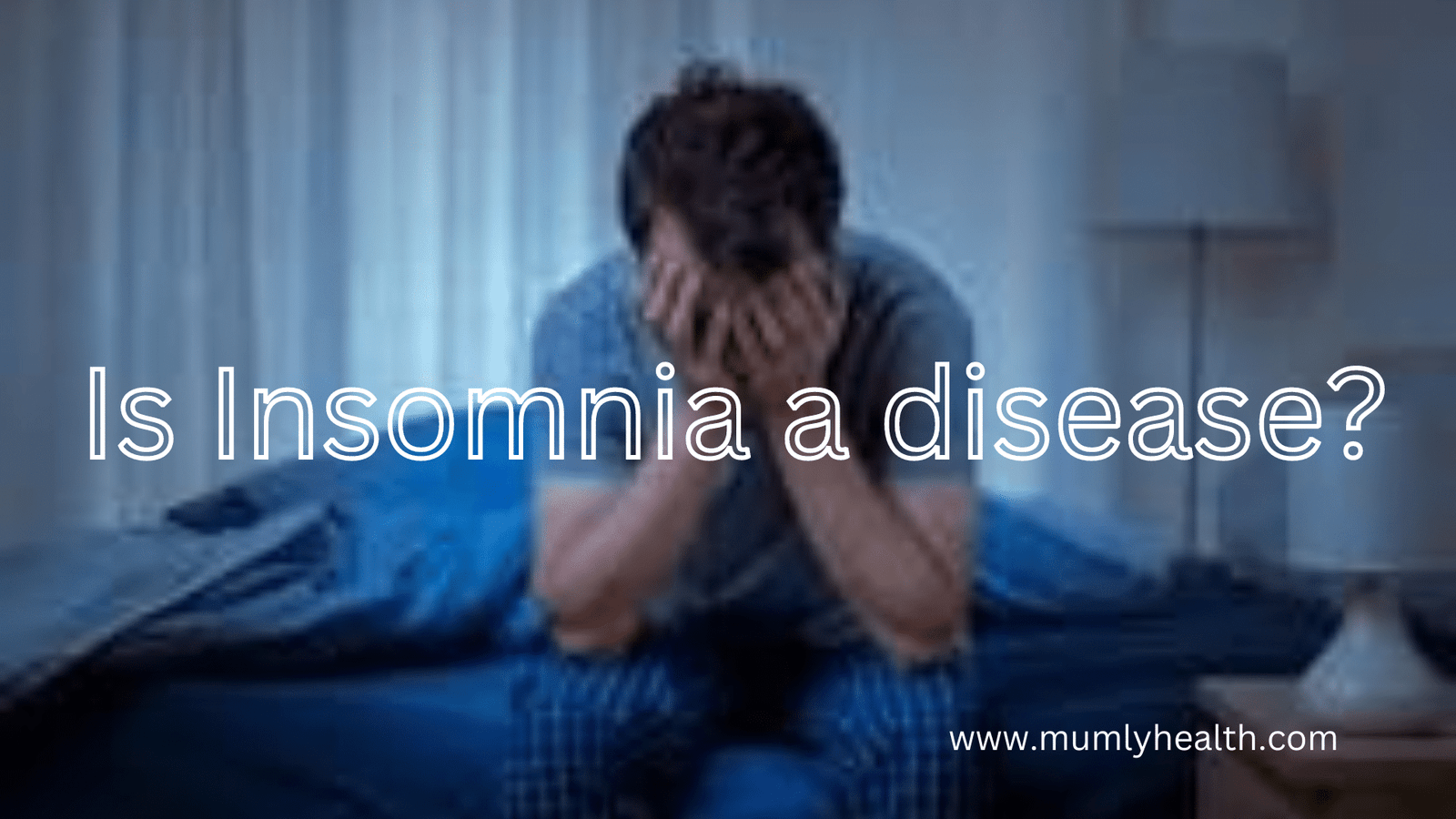Share this
When your ability to feel or perform is hampered because you aren’t getting enough or quality sleep, you are said to have insomnia.
The percentage of people who have insomnia, which is considered to be a medical issue, is around 10%. It can be treated in various ways, including with drugs and mental health services, and is typically not hazardous.
What is Insomnia?
It may be difficult for you to get asleep, to stay asleep, or to wake up too early and have trouble falling back asleep if you have insomnia, a common sleep problem.
When you awaken, you can still feel exhausted. Your quality of life, health, and work performance can all suffer from insomnia in addition to your energy level and mood.
Insomnia might be a minor annoyance for some people. Others may experience severe disruptions from sleeplessness. The causes of sleeplessness might also differ significantly.
Your body requires sleep for a variety of reasons, and science is only just beginning to comprehend why this is the case.
Types of Insomnia
Experts generally classify insomnia into one of two groups:
Cause
Primary insomnia is a condition that develops on its own. Insomnia secondary to another state or situation is a sign of that other thing.
Time
Insomnia can be acute (short-term) or chronic (long-term), according to experts. Insomnia disorder is the name given to the regular type.
How widespread is insomnia?
Insomnia, both acute and chronic, is highly prevalent. Around the world, one in three persons experience symptoms of insomnia, and 10% of adults have an insomnia disorder.
Causes of Insomnia
Stress, traumatic experiences, or sleep-disturbing habits frequently bring on chronic insomnia.
Insomnia can be cured by attending to the underlying cause, but it occasionally persists for years.
Chronic insomnia has a variety of causes, including:
Stress
Your mind may remain active at night due to worries about your family, job, health, finances, or other factors, making it difficult to fall asleep.
Insomnia can also be brought on by traumatic or stressful life events like divorce, losing your job, or losing a loved one to death or disease.
Mental health issues
Nearly half of those with chronic insomnia also struggle with at least one other mental health issue, such as anxiety or depression.
Life changes
Temporary or brief adjustments, such as jet lag, sleeping in a strange environment, or getting used to a new work schedule (particularly shift work), are frequent contributors.
Sleep can also be impacted by long-term changes, such as moving to a new home.
Also See: Everything you need to about Hymenoplasty: a hymen restoration surgery
Bad sleeping patterns
An erratic bedtime schedule, naps, stimulating activities right before bed, an uncomfortable sleeping environment, and using your bed for work, eating, or watching TV are all examples of poor sleep habits.
Your sleep cycle might be disrupted by using computers, TVs, video games, smartphones, or other devices right before bed.
Over-eating late at night.
A small snack before bed is acceptable, but if you consume too much, you can feel physically uncomfortable when lying down.
Heartburn, or the reflux of acid and food into the esophagus after eating, is another common condition that might keep you awake.
Medical conditions
Chronic pain, cancer, diabetes, heart illness, asthma, gastroesophageal reflux disease (GERD), an overactive thyroid, Parkinson’s disease, and Alzheimer’s disease are a few disorders that have been linked to sleeplessness.
Sleep disorders
Your breathing stops periodically during the night if you have sleep apnea, which disrupts your sleep.
Your legs may experience uncomfortable sensations and an almost insatiable want to move due to restless legs syndrome, which may keep you from falling asleep.
Alcohol, nicotine, and caffeine.
Stimulants include caffeinated beverages like coffee, tea, cola, and others. If you consume them in the late afternoon or evening, you can have trouble sleeping at night.
Another stimulant that might disrupt sleep is nicotine, which is present in tobacco products.
Although it may aid in falling asleep, alcohol prevents deeper sleep phases and frequently results in awakening.
Read Too: Do Hemorrhoids Kill?
What are Insomnia’s complications?
Sleep deprivation results from insomnia that is severe or persistent. Daytime sleepiness, which can be harmful if you’re driving or performing other duties that call for alertness and attention.
It could lead to depression, stroke, heart attack, hypertension, type 2 diabetes, obesity, anxiety, and psychosis.
Sound sleep can be encouraged, and insomnia can be avoided with good sleep habits:
- Keep your wake-up, and bedtime schedules the same every day, even on the weekends.
- Keep moving; regular movement encourages restful sleep.
- Examine your prescriptions to discover if any of them might be causing your insomnia.
- Limit or avoid napping.
- Avoid or consume alcohol and nicotine in moderation.
- Avoid consuming a lot of food or liquids right before bed.
- Only use your bedroom for sleeping or having sex. Make it pleasant.
- Establish a soothing nighttime routine that includes activities like a warm bath, reading, or listening to calm music.
Conclusion
Insomnia is a symptom, not a disease or diagnosis. With proper rest, one would be fine. However, it is advisable to see your Doctor if the symptom persists.
